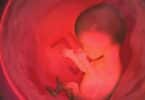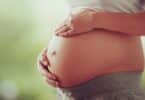A miscarriage affects every woman differently, but the common thread is heartbreak and it can also be devastating for her partner. Unfortunately, miscarriage is more common than people expect, with one in five women experiencing miscarriage in the first three months of pregnancy.

After this heartbreaking loss, when is it best to try again?
Previous advice urged women to wait at least six months before trying to conceive again. But a new review by the University of Aberdeen says that conception within the first six months following a miscarriage is less likely to result in another loss through miscarriage.
A senior lecturer at the college, Dr. Sohinee Bhattacharya, recently told the BBC’s Good Morning Scotland program that the best pregnancy outcomes happen when women who had miscarried got pregnant again within the following six months. She says evidence indicates that “couples improve their chances of a successful pregnancy if they try to conceive again as soon as they feel mentally and physically ready.”
Dr. Bhattacharya also says the new review offers enough evidence to change the World Health Organization guidelines that tell couples to wait.
Many physicians and reproductive experts welcome the news in this review and the reassurance it provides for couples who have suffered a miscarriage. And while encouraging, it cautions that both partners should feel physically and emotionally ready to try again.
Counseling can be helpful in managing the stress and sadness a miscarriage can trigger. Women who want to try to conceive again should always wait until any pain or bleeding has stopped, and should be taking folic acid before they resume sexual activity.
Ruth Bender Atik, national director of the Miscarriage Association says that the review is extremely important and hopeful, confirming to couples that they can choose to “try again as soon as they feel ready.”
It’s not clear why women are less likely to experience another miscarriage when they conceive again within the first six months, but speculation is that they might take better care of themselves, be more motivated in good pregnancy practices after suffering a loss, or perhaps they may simply be more fertile in those first months.





